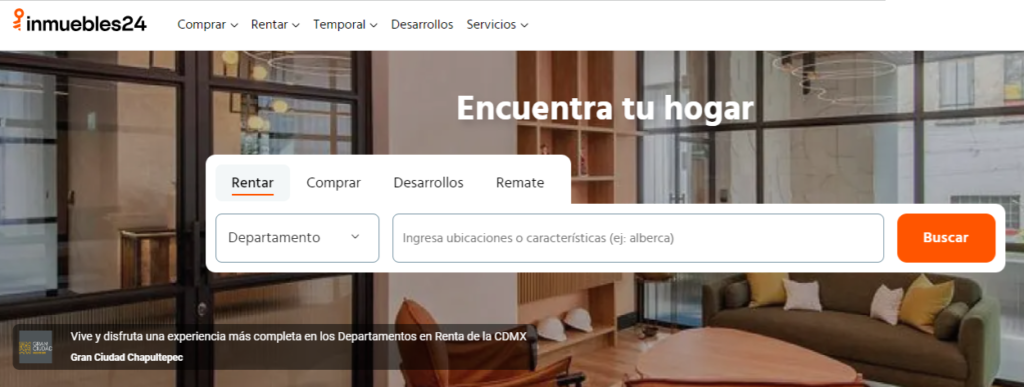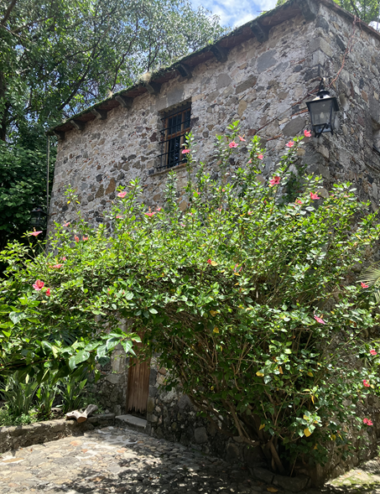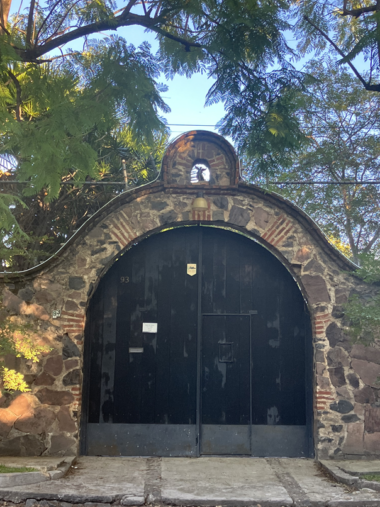For any foreigner contemplating a home purchase in Mexico, my first question is… Do you have a strong stomach?
Despite having bought and sold six houses over the past 12 years in the U.S., buying property in Mexico was unlike anything my husband and I had ever experienced. Contrary to the airbrushed descriptions on real estate websites catering to expats (I’m looking at you Far Homes), buying property here can be a real slog.
I’d liken buying a house in Mexico to running a marathon in flip flops, i.e., you’re going to suffer along the way, and may even feel like quitting before you reach the finish line.
That said, you can succeed if you’re determined and persistent. For those up to the challenge, I share insights below on how to search for Mexican properties, do price discovery, and find a quality agent.
And before we dive in, if you haven’t read Part 1 of this series covering the basics of buying real estate in Mexico as a foreigner, I suggest that you start there.
Now, let’s take a closer look at house-hunting in Mexico.
Finding Homes for Sale
Unfortunately, there’s no centralized MLS website in Mexico where all properties for sale are aggregated. Instead, it’s a highly fragmented market, with different realtors’ websites advertising different inventory for sale.
Depending on the size of the city where you wish to put down roots, it means you’ll probably have to visit a lot of websites to get a handle on what’s available.

On top of that, loads of properties on the market aren’t listed online. They’re advertised the old-fashioned way, i.e., with a sign out front and a phone number to call for information.
Our first agent in Guadalajara claimed that about 50% of properties for sale here are NOT advertised online. Accurate? Who knows! What I can tell you is that walking around this city, you see an astounding number of for-sale signs… So the figure seems plausible.
With such properties, you rarely see any details on signage regarding size, amenities, or even price — and hence it’s impossible to know whether it meets your needs, apart from location and exterior features. You have to make a call (and perhaps a visit) to find out.
Given the general lack of transparency, zeroing in on homes that fit your needs and budget is time-consuming, equal parts web searches and pavement pounding.
After months of searching, my unscientific impression was that properties advertised online were generally more expensive, but with sellers more serious about selling.
To get your online search started, I recommend checking out Inmuebles24, Vivanuncios, Propiedades, and Lamudi. These websites cover most Mexican cities and destinations popular with expats.
Having worked in website optimization for more than a decade, I find browsing real estate websites in Mexico rather painful. Many sites lack robust filtering tools and map views, don’t display well on mobile devices, and allow agents to post multiple instances of a single property. This litters up search results with multiple entries for the same home and bogs down the shopping process.
Properties advertised online also rarely use professional photography. Agents take most photos with cell phones and either look amateurish or leave a lot to the imagination. New business opportunity? For this reason, if you see a home online that checks many boxes for you, I recommend seeing it in person, as we were often pleasantly surprised.
If you’re searching in smaller towns less popular with expats (cheers to you!) it is probably better to seek out local agencies specializing in that area, as they’re likely to have listings the big players don’t.
Plus, there may be less inventory advertised online in small towns compared to larger cities. In these situations, it’s best to drop into a local real estate office to check their listings and learn about properties coming soon, to get a leg up on the competition, who are doing all of their searching online.
Finally, you may see properties for sale posted to expat groups on social media, either by the owners or their agents. Again, these properties tend to be above-average in price and skew towards newer developments.
Some readers may disagree, but I would never put money down on a “pre-sale” property (not yet built) as the odds of something going wrong are much higher. My favorite story from Guadalajara is of a developer who was constructing a tower in Providencia but got jailed in California before it was finished. There are definitely some unhappy buyers with money tied up in that mess.
How do you find an agent?

As of now, agents don’t need licenses to practice in Mexico, so pretty much anyone can show properties and call themselves an agent. As noted in my previous post, new rules to establish a basic certification for agents are coming later this year, but haven’t yet been rolled out.
The current lack of standards means that market knowledge and experience are not guaranteed, and in some cases are highly deficient.
When we first began searching websites and finding properties we liked, we sent emails and WhatsApp messages to agents handling those properties. Some responded quickly, while others never did. If possible, I recommend using WhatsApp over other communication methods.
If your experience is anything like ours, you’ll discover that some agents treat working in real estate like a hobby. They won’t respond promptly to emails, calls, or questions. Some won’t be available to do showings on weekends when people who work are typically available to tour houses.
On the other hand, some agents will bend over backward to find you listings that suit your needs, messaging you 24/7, and making themselves available whenever you are.
Because it’s such a mixed bag, you owe it to yourself to try out a few agents until you find one you click with, and that checks all of your boxes. We fired several agents during our four-month home search. Not fun, but sometimes necessary.
What’s essential is finding an agent who knows the process inside and out in your chosen location and has hands-on experience closing deals, as this will enable them to provide you with invaluable insights into what things cost and what you should be paying. (More on this soon)
In tourist enclaves like San Miguel, Lake Chapala, and Puerto Vallarta, you’re also likely to find expat agents who in their past lives were realtors NOB. Some of them have years of experience doing deals outside of Mexico, as well as in Mexico.
During our home search, we were also regularly attending expat meetups and getting referrals to agents that other foreigners had worked with. While it’s fairly common to see agents recommended in expat forums on social media, too, I’m less inclined to put much stock in recommendations from total strangers.
Bottom line — you must do your due diligence and ask a lot of questions! Find an agent you’re comfortable with and who listens to your needs. If an agent isn’t showing you properties that meet your requirements, find another agent!
What should it cost?
Besides no consolidated listing service from which to shop for homes, there’s also no public data on closed sales, average prices, days on the market, and so on.
So you can forget about gathering and evaluating comps to determine a fair price, because there aren’t any comps. If you’re an analytical person like me, this may be one of the hardest aspects of buying in Mexico. You’ll have little idea what other people are paying, apart from checking the most general (and dated) statistics on average sale prices found on sites like statista.com.
There may be a house in your preferred neighborhood priced at $20 million pesos (like in ours!) and wonder… Is that a pie-in-the-sky price that no one will ever pay, or is it close to what houses sell for in that area? Given the lack of hard data, you have to get creative in how you answer that question.
Here’s where a good agent may come in handy. What does your agent think of the price of the house you’re interested in? If they give you a vague answer, then press them some more. If they continue to dodge the question, find another agent.
A good agent works for you, the buyer, and will give you unvarnished advice on something as important as an asking price.
If an agent is experienced in the area where you plan to buy, they will have knowledge of other closed sales. These properties won’t be identical to what you’re looking at, but they will provide some context for what houses actually sell for. Speaking to other expats who have made purchases is another way to gather market intelligence.
But the fact is, you have no way of learning exactly how much that house down the street sold for. It’s not publicly disclosed, and even getting in touch with the sales agent is unlikely to yield any reliable information, as so many deals involve cash under the table in addition to the price indicated on the official property deed (escritura). This is because many Mexican buyers keep transaction details hidden to lower their tax bill.
To cut through some of the opacity, I recommend visiting LOTS of real estate sites to get familiar with the asking prices in your preferred areas. After a while, you’ll start to see where the sweet spot is and which properties’ asking prices are outliers.
Beyond that, leverage your own experience and intuition. After visiting the place a few times (not just once!) decide what the property is worth to you.
Does it offer good value for the price? Does it look like it will require tons of repairs and renovations, or is it well-maintained and in livable condition? Bid accordingly.
Touring properties
Unlike in the States, it is commonplace for the owner to be present while you tour their property. This always made me a bit anxious, because I want to open doors and drawers, check light switches, and inspect the plumbing when touring a home. I want to speak candidly to my agent and spouse while visiting a property, and the owner’s presence has you biting your tongue.

With an owner trailing after you and watching your every move, you start feeling self-conscious. At times, I was followed so closely that I thought they thought I was going to steal something. Needless to say, it can interfere with your ability to envision living there.
One way to flip the script – if you speak Spanish – is to compliment the owner on the things you like about the property, and ask them questions about how stuff works. Most Mexicans are very social and talkative, and when they get started, you’d be surprised at the details they share, e.g., the age of appliances, systems, hidden design elements, flooding issues they’ve had, even details about the neighbors. This is valuable information to collect in light of the other deficits noted above.
On one occasion, we toured a property where the owner wasn’t home but her maid was, as she was the one who let us inside. Talk about hitting the jackpot! Maids know where all the bodies are buried – so to speak.
If you find yourself in this situation, take full advantage of the opportunity to ask them how things work, e.g., where the fuse box is, how the lighting and water supply are controlled, and where the problems are. If you don’t speak Spanish, make sure that your agent chats them up.
As a final note on touring, we were surprised to find that very few homes were tidy and polished when shown. Unlike up north, where agents advise draconian de-cluttering, de-personalizing, and deep-cleaning ahead of home showings, most Mexican sellers just seem to wing it.
Shenanigans & Surprises
A house hunt in Mexico may also come with a side order of shenanigans. Be observant and keep an eye out for things that seem off.
While your mileage may vary, below are some of the dubious things we saw and learned while house-hunting in Guadalajara:
- An owner raised the price of his condo during our tour upon learning we were Americans. (We left)
- A sales agent demanded that we sign a contract requiring 100% payment on a condo where the work wasn’t yet finished and the developer had not yet received deeds from the city. (We declined)
- An American we met randomly informed us that a new building we were considering purchasing a condo in had partially fallen down during construction. (We dodged a bullet there!)
- We made a full-price offer on a property only to discover the seller’s agent never presented it to her client on account of having another (weaker) bid already in hand. Who knows what her motive was, but we ended up dropping a letter in the sellers’ mailbox to bypass their agent – and it was key to ultimately getting the deal.
Conclusion
All told, we spent four months house-hunting in the Guadalajara metro area. There were plenty of times we considered quitting the effort altogether and renting, shifting our search to a different city — and at the lowest point — returning to the U.S.
Ultimately, we were fortunate to find an experienced agent who listened to our needs and recommended we visit a house in a part of town we knew nothing about but fit our wish list perfectly. It ended up being the house we bought.
In my final post of this series (coming later this week), I’ll share details of what it took to close the deal.

